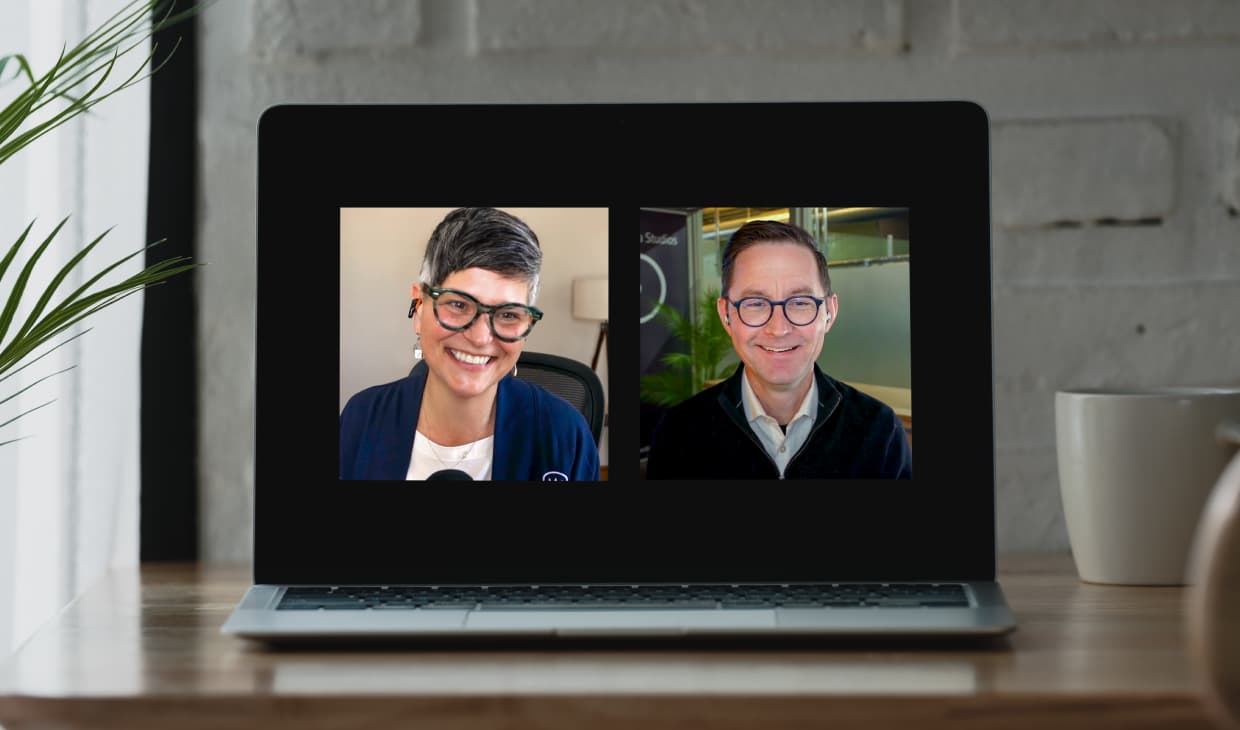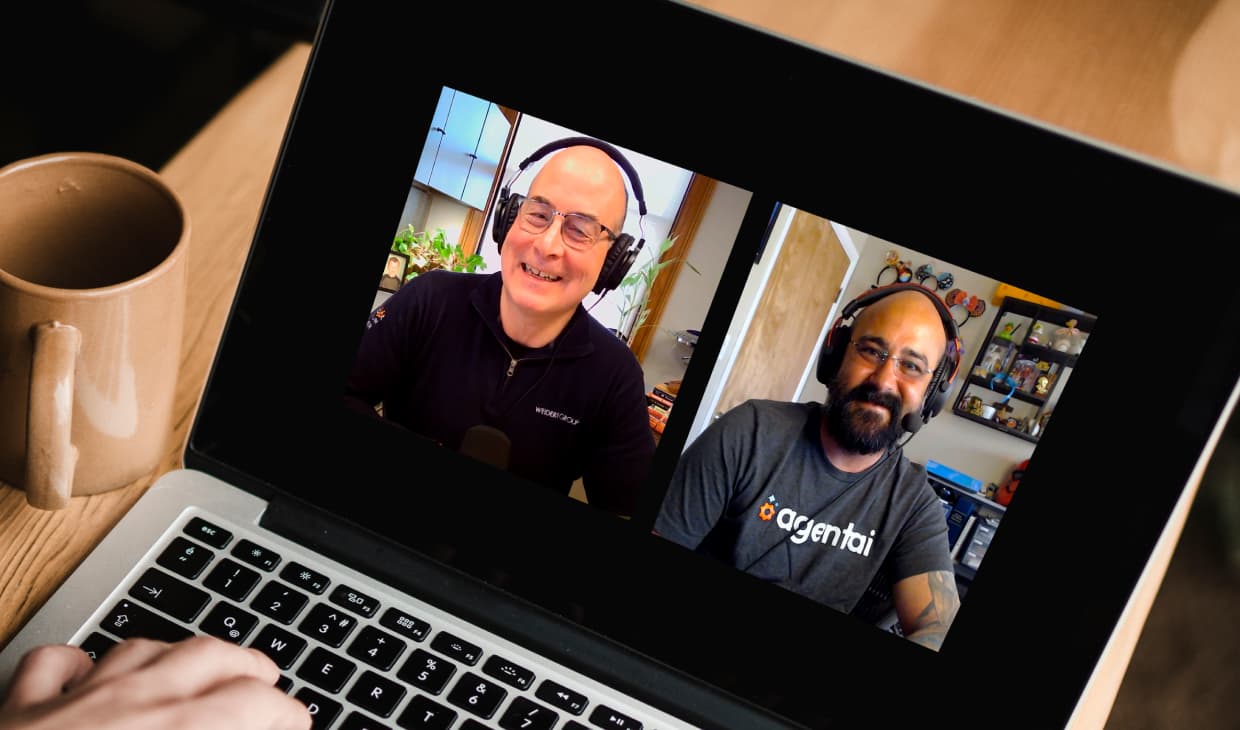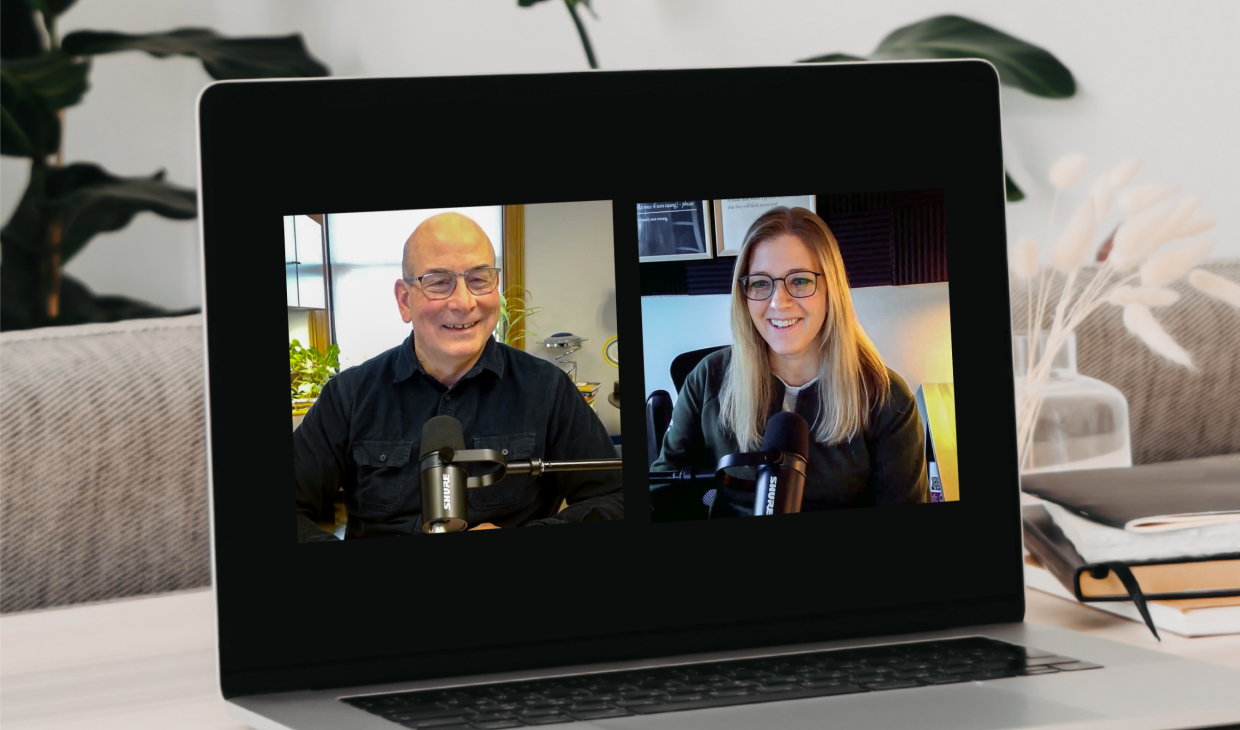SMEs Over SEO: How to AI-Proof Your Content Strategy for 2025
Written by
When we sat down to record our latest episode of The ChangeOver Podcast, Weidert Group Strategist and SEO Manager Chelsea Drusch and I explored how AI is simultaneously making content creation easier and true content leadership harder.
While AI makes content creation faster and more accessible than ever, it’s simultaneously making most content less distinctive, less authentic, and less valuable.
The implications for B2B content strategy are forcing marketers to fundamentally rethink how we ideate, create, distribute, and measure content’s performance. If you’re paying attention, you’re probably asking:
- Should I still be blogging?
- How can I create content that stands out when AI can generate how-to and what-is articles in seconds?
- Should I use AI for content creation? If I do, how do I avoid generating commodity stuff that looks like everyone else’s?
If your strategy still revolves around keyword research and predictable publishing schedules, you’re likely investing resources in content that will become increasingly invisible. Read on for the summary — or jump straight into the podcast for all the details:
Check out episode 11 of The ChangeOver now, then subscribe on Apple, YouTube, Spotify, Weidert.com, or your favorite podcast app.
Crossing the Great Content Divide: What’s Changed — and Why
The content marketing landscape has fractured into distinct territories: AI-generated copycat content flooding SERPs on one side, and expert-driven insights that influence buying decisions on the other. This divide reflects shifts in B2B buyers behavior:
- AI has made basic informational content abundant — and often worthless from a marketing standpoint
- B2B buyers are bypassing traditional discovery channels (like search) for peer networks and expert communities
- Generational shifts drive demand for sophisticated insights from trusted subject matter experts
- Traditional metrics like website traffic are becoming less relevant as users rely on diverse platforms
From Content Calendar to Conversations: A New Operating Model
For years, content strategies emphasized high-volume production focused around SEO keyword strategies and followed a predictable pattern:
- Perform keyword research
- Create an editorial calendar
- Publish consistently
- Optimize for search
- Measure traffic and conversions
“There was a time when publishing more content almost guaranteed results. You’d see benefits to your domain authority and visibility even if individual pieces didn’t perform. But that just isn’t the case anymore.” — Chelsea Drusch, Strategist and SEO Manager, Weidert Group
The new content development cadence needs to be agile, nimble, and responsive to market dynamics. Above all, your content strategy should be driven by business objectives. Not keywords, not deliverable formats. Start with your business goals, and determine how content can help you achieve them.
Building Your AI-Proof Content Engine
Adapting demands a well-oiled process that consistently produces impactful, expert-driven content. Think of your content process as a loop that starts with listening, flows through expert collaboration, and circles back with real-world feedback to guide the next piece:
- Start with listening: Use tools like social listening platforms, CRM data, and customer feedback to uncover audience needs and priorities. Make this a routine practice.
- Collaborate with SMEs: Establish regular touchpoints with internal experts — engineers, sales reps, and service teams — through interviews and brainstorming sessions.
- Plan dynamically: Replace rigid editorial calendars with flexible content frameworks that prioritize timeliness and relevance.
- Iterate and optimize: Treat content as an evolving asset. Monitor engagement and refine based on what resonates.
- Incorporate AI intentionally: Use generative AI to enhance efficiency and support your workflow — never as a substitute for authentic human insights.
A strong process achieves more than better content — it also aligns teams around producing work that gets results.
RELATED: AI in Industrial Marketing & Content Creation: Real Talk from Two Years in the Trenches
Your Secret Content Goldmine: Activating Internal Expertise
The most valuable content insights often aren’t found through keyword research. Instead, they’re buried in daily operations. Here’s where to start your search:
Technical experts like engineers or R&D teams. If your goal is to highlight innovations or problem-solving approaches, engage in conversations around industry challenges or trends, or to demonstrate real-world applications of your solutions…start here.
Customer-facing teams. Sales and Customer Service teams eat, sleep, and breathe customer challenges, questions, needs, and even complaints. Capture their conversations! Call transcripts, support tickets, chatbot conversations, and form submissions can all bring fresh perspective to your content planning. Mine your on-site service teams for intelligence on how customers can be better prepared for success.
Online conversations. Social media sites like LinkedIn, reddit, and Quora are becoming many users’ first choice for top-of-funnel information seeking — but your mileage may vary by industry. Trade publication sites and industry associations often host forums where experts share and discuss challenges and solutions. Ignore them at your own peril.
From Blogging to Bold Formats: Diversify Your Content Arsenal
While blogs remain an essential tool, formats also evolve. Audiences want variety, and your strategy should reflect that. Experiment with:
- Video content — short clips featuring SMEs explaining key concepts or solutions can engage audiences across LinkedIn and YouTube
- Infographics and carousels — these are perfect for breaking down complex ideas into visual, digestible formats
- Interactive tools — consider calculators, self-assessments, or mini-guides that offer personalized value
- Podcasts and webinars — long-form formats are ideal for detailed discussions and thought leadership, especially when paired with SME participation.
Leverage AI as a Creative Ally
"The real opportunity with AI isn’t in generating more content — it's in amplifying the helpfulness and value of your experts’ insights. As Chelsea put it, “AI can analyze a one-hour SME interview in seconds and identify patterns we might miss.”
Strategic, thoughtful use of the tech can help you create more value at every stage of your content program:
1. Research, Discovery & Ideation
- Analyze sales call transcripts, CRM data, and support tickets to identify emerging customer pain points
- Gather and summarize discussions by industry experts and thought leaders to spot trends
- Review and audit existing content to find opportunities for expert-driven updates and improvements
- Prepare for SME interviews with background research on the basics
2. Content Development
- Transform long-form SME interviews into content for multiple formats
- Generate potential angles and headlines based on expert insights
- Identify gaps in existing content that your SMEs could address
3. Distribution & Amplification
- Optimize expert-created content for different platforms without losing its essence
- Track patterns to determine optimal timing for content release
- Scale personal insights into various formats while maintaining authenticity
The key is being intentional: AI should help surface, shape, and share your expertise — not replace it. As Chelsea pointed out in our discussion, if AI could create your content from internet research alone, you’ve already lost the battle for attention.
From Old Metrics to Meaningful Engagement: Rethinking Measurement
Website traffic is no longer the ultimate barometer of success, so it’s time to reimagine how we measure content performance.
Engagement metrics — like shares, comments, and direct interactions — are becoming more relevant than traditional indicators like pageviews or keyword rankings. The goal is to understand how your content fits into broader discussions, not just how many eyeballs it attracts. Focus instead on:
- Authority indicators
- Expert engagement with your content
- Industry citations and references
- Speaking invitations and partnership opportunities
- Engagement quality
- Depth and quality of comments and discussions
- Content sharing with added perspective
- Direct feedback from target accounts
- Business impact
- Sales team feedback on content utility
- Prospect meeting quality
- Deal influence attribution
Your Path Forward: Practical Steps for 2025
Adapting your strategy for the age of AI isn’t about making more or different content — it's about fundamentally shifting how we think about content’s role in B2B marketing. Success in 2025 will belong to organizations that can effectively mine their internal expertise and transform it into valuable market insights.
The good news? The hardest part — expert insight — is within easy reach. The challenge now is creating your system to capture and share that expertise effectively.
Ready to transform your approach? Start with this simple step: Meet with your most knowledgeable SME and ask questions. Record the conversation. Feed the transcript to an AI tool. You might be surprised at how much valuable expertise is waiting to be discovered and shared.
Then go back and watch or listen to this episode — and subscribe to make sure you don’t miss the next conversation.
Subscribe To Our Blog
Information. Insights. Ideas. Get notified every time a new Weidert Group blog article is published – subscribe now!
You May Also Like...

Artificial Intelligence
Revenue-Driving B2B Content Marketing Strategy with Andy Crestodina

Artificial Intelligence
AI Agents Are Here—How Smart Businesses Are Using Them Now

Inbound Marketing
Podcasting Playbook: What We Learned After 100 Days of Running a B2B Podcast
Accelerate Your Growth with
Weidert Group
If you’re ready to explore a partnership, request a personalized consultation with our team.

